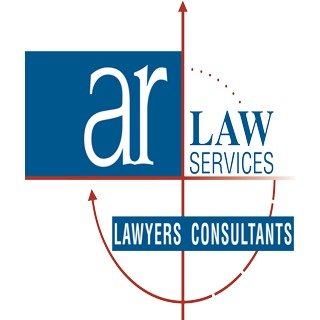Best State, Local, and Municipal Law Lawyers in Australia
Share your needs with us, get contacted by law firms.
Free. Takes 2 min.
Or refine your search by selecting a city:
List of the best lawyers in Australia
About State, Local, and Municipal Law in Australia
State, Local, and Municipal Law in Australia governs the operations and responsibilities of state and local government entities. This area of law deals with various legal issues related to the administration of cities, towns, and regions within a state, including their ability to pass laws, enforce regulations, and administer services. Each Australian state and territory has its own legislative framework, meaning there is diversity in how laws are interpreted and applied across the country. Local governments are formed under state legislation and have responsibilities that include planning and development, waste management, and ensuring local community welfare.
Why You May Need a Lawyer
Individuals may require legal assistance in this field for numerous reasons. Common situations include disputes over land use and zoning, compliance with local council regulations, procurement of permits and licenses, or challenging decisions made by a local council. Sometimes individuals or businesses may also need to negotiate with local governments regarding bylaws or appeal against council decisions that are deemed unfair. Given the complexities and variations in legal issues across different jurisdictions, professional legal advice can ensure better outcomes and compliance with pertinent regulations.
Local Laws Overview
Local laws, sometimes referred to as bylaws, are those rules made by local government entities to manage the affairs within their region. Key aspects of local laws relevant to State, Local, and Municipal Law in Australia include:
- Planning and Development: Regulations governing land use, property development, and zoning which determine how land can be used in different areas.
- Environmental Management: Local councils oversee waste collection and management, pollution control, and conservation efforts.
- Public Health and Safety: Ensures public safety through regulations on building codes, food safety, and public event management.
- Animal Management: Includes registration, control, and welfare of domestic animals.
- Community Infrastructure: Management of public spaces, local roads, parks, and recreational facilities.
Frequently Asked Questions
What is the role of local councils in Australia?
Local councils in Australia manage community services and infrastructure, enforce local laws, and make decisions on behalf of their communities about local planning and development.
How can I challenge a local council decision?
Challenging a local council decision typically involves lodging an appeal or objection through a formal process. The specific steps can vary depending on the state or territory, and it's advisable to seek legal guidance.
What are planning permits and why are they important?
Planning permits are legal documents obtained from local councils that confirm your proposed land use or development complies with planning regulations. They are essential for ensuring development aligns with broader community and planning objectives.
How does zoning affect property use?
Zoning determines the permitted use of land and buildings in an area, such as residential, commercial, or industrial use. Zoning laws impact what can be built, altered, or utilized on a property.
Can local laws differ within a state?
Yes, local governments have the authority to create bylaws that reflect the needs of their local community, leading to variations in laws between different areas within a state.
What should I do if I receive a fine from the local council?
If you receive a fine, review the details to ensure it's valid and understand your rights. You can contest a fine if you believe it's unfair. Legal advice may help clarify and potentially resolve the issue.
How are council decisions influenced?
Council decisions are influenced by input from community members, strategic plans, statutory obligations, and other legislative requirements. The public can often participate in consultations or council meetings.
Are there legal restrictions on keeping animals in residential areas?
Yes, local councils often have regulations regarding the number and type of animals you can keep on your property. These rules aim to balance community interests with animal welfare.
What is the process for obtaining a building permit?
The process generally involves submitting an application to the local council, including plans and specifications of the proposed building project, which are then reviewed for compliance with building codes and standards.
Why is environmental management important in local law?
Environmental management is essential to protect local ecosystems, ensure sustainability, and maintain quality of life for residents by controlling waste, pollution, and conservation initiatives.
Additional Resources
For those seeking further guidance, numerous resources can assist individuals and businesses in navigating State, Local, and Municipal Law in Australia:
- Local Council Websites: Councils publish laws, services, and contact details on their official websites, which provide valuable information for residents.
- State Government Legal Aid Services: These services offer legal advice and assistance for individuals needing support on civil matters.
- Australian Local Government Association (ALGA): A national voice of local government representing councils across Australia.
- State Planning Departments: Provide guidelines and information on state planning policies and development assessments.
Next Steps
If you need legal assistance regarding State, Local, and Municipal Law, consider the following steps:
- Identify the Issue: Clearly define your legal issue and gather any relevant documentation.
- Seek Professional Legal Advice: Contact a lawyer with expertise in State, Local, and Municipal Law to assess your situation and advise on a course of action.
- Utilize Government Resources: Contact local or state government bodies for information and guidance relevant to your query.
- Participate in Mediation: If applicable, mediation services can facilitate negotiation between parties to achieve a resolution.
Qualified legal professionals can provide essential guidance and representation tailored to your specific needs, ensuring your rights and responsibilities are properly managed.
Lawzana helps you find the best lawyers and law firms in Australia through a curated and pre-screened list of qualified legal professionals. Our platform offers rankings and detailed profiles of attorneys and law firms, allowing you to compare based on practice areas, including State, Local, and Municipal Law, experience, and client feedback.
Each profile includes a description of the firm's areas of practice, client reviews, team members and partners, year of establishment, spoken languages, office locations, contact information, social media presence, and any published articles or resources. Most firms on our platform speak English and are experienced in both local and international legal matters.
Get a quote from top-rated law firms in Australia — quickly, securely, and without unnecessary hassle.
Disclaimer:
The information provided on this page is for general informational purposes only and does not constitute legal advice. While we strive to ensure the accuracy and relevance of the content, legal information may change over time, and interpretations of the law can vary. You should always consult with a qualified legal professional for advice specific to your situation.
We disclaim all liability for actions taken or not taken based on the content of this page. If you believe any information is incorrect or outdated, please contact us, and we will review and update it where appropriate.
Browse state, local, and municipal law law firms by city in Australia
Refine your search by selecting a city.









